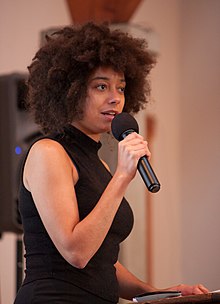**Historical Roots and Influences**:
– Veganism historically associated with white movement
– Black veganism rooted in Rastafari, African Hebrew Israelites, Nation of Islam
– Dick Gregory linked civil rights and animal rights activism
– Queen Afua influential in Black raw veganism in 1990s-2000s
– Aph and Syl Ko developed philosophical framework for Black veganism
– A. Breeze Harper’s “Sistah Vegan” and McQuirter’s “By Any Greens Necessary” influential books
– Bryant Terry’s “Afro-Vegan” disrupted mainstream perceptions of veganism
– Oprah Winfrey, David Carter, NBA players, Beyonce, Senator Cory Booker, Mayor Eric Adams prominent Black figures discussing veganism
**Philosophy and Description**:
– Black veganism in the US as a social, political philosophy and diet
– Connects non-human animal use with social justice, slavery legacy
– Health issues like diabetes, heart disease catalysts for POC to go vegan
– Movement about reclaiming food sovereignty, decolonizing Black American diet
– Black veganism lens of race and animality for social justice
**Statistics and Current Trends**:
– Up to 8% of Black Americans identified as vegan by late 2010s
– Gallup report in 2021 named Black people fastest-growing vegan demographic
– Black veganism seen as a revolutionary act against oppression
– Black veganism an emerging discipline according to Institute for Critical Animal Studies
– Black veganism gaining popularity in recent years
– Black communities defining Black veganism as a cultural-specific practice
– Mainstream veganism criticized for lack of intersectionality with social justice issues
**Appropriation and Advocacy**:
– Black vegans face exotification of their food and culture in white vegan communities
– Thug Kitchen blog controversy and subsequent name change
– Hip Hop is Green promotes veganism to Black youth through hip hop events
– Vegan Voices of Color advocates for more inclusivity in mainstream veganism
– The Food Empowerment Project focuses on vegan food justice advocacy
– Black Vegans of South Africa provides a safe space for BIPOC vegans and promotes visibility
**Impact and Challenges**:
– Black veganism challenges stereotypes and promotes health and sustainability
– Advocacy groups address food justice issues affecting BIPOC communities
– Black vegan voices gaining visibility in mainstream media and politics
– Stereotypes and misconceptions about veganism in Black communities persist
– Access to affordable and culturally relevant vegan options can be limited
– Intersectional issues of race, class, and sustainability impact black vegan experiences
Black veganism in the United States is a social and political philosophy that connects the use of non-human animals with other social justice concerns such as racism and with the lasting effects of slavery, such as the subsistence diets of enslaved people enduring as familial and cultural food traditions. Sisters Syl Ko and Aph Ko first proposed the intersectional framework for and coined the term Black veganism. The Institute for Critical Animal Studies called Black veganism an "emerging discipline".

Research has found that about 8% of Black Americans are vegan or vegetarian, which is much higher than the 3% rate among Americans of other ethnic groups.
